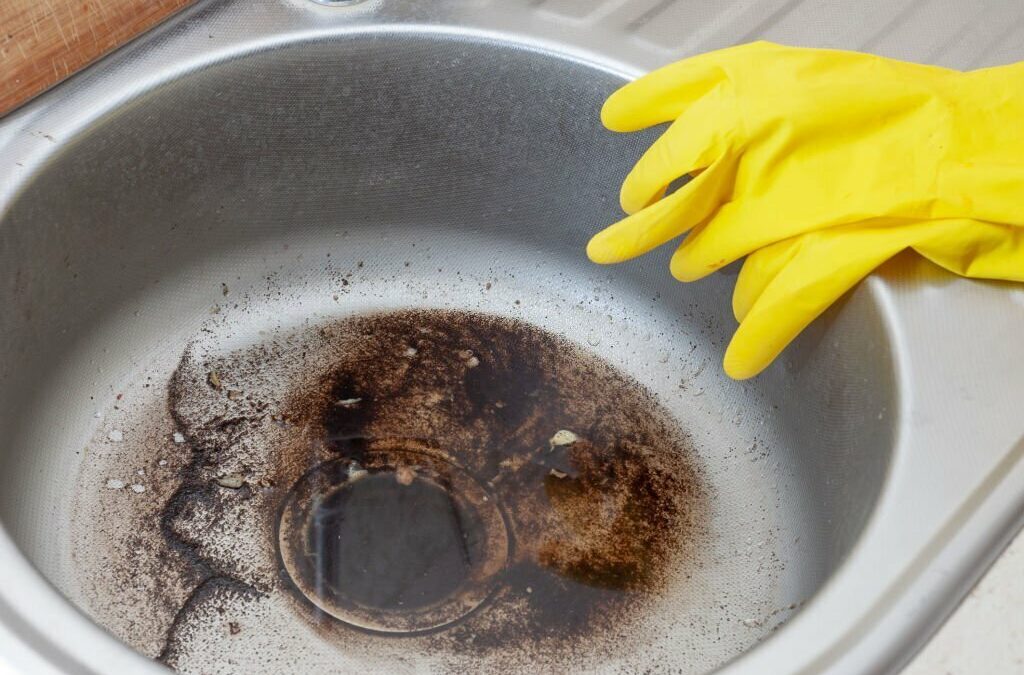Introduction
Ah, the kitchen sink! A hub of activity in every household. It’s seen a mix of pasta nights, dinner plate clean-ups, and coffee mornings. But, every now and then, it presents us with an unexpected challenge: a clog. The sudden pool of water, the unnerving silence instead of the regular swish-swash sound of draining water – every homeowner’s minor nightmare. But fear not, for understanding the nature of clogged drains is the first step towards finding a solution.
What Causes Clogs?
Clogs in sinks can be caused by various factors that obstruct the smooth flow of water. These can range from everyday items we use to unexpected intruders that find their way into the drainage system.
-
The Daily Culprits
Everyday items such as grease and oils, food particles, and hair can easily accumulate in sink drains and lead to clogs. Grease and oils, when poured down the sink, can solidify and cling to the walls of the pipes, reducing the diameter of the drainage passage. Food particles, especially starchy or stringy ones, tend to accumulate over time, forming a barrier that prevents water from passing through. Hair, a common issue in bathroom sinks and showers, can also weave itself into the drain, leading to a blockage.
-
The Unexpected Intruders
Apart from the regular suspects, there are unexpected items that can find their way into sink drains. These can include jewelry accidentally dropped into the sink, children’s toys, and even plant debris for those who keep indoor plants near the sink. These items, when lodged in the drain, can obstruct the water flow and contribute to clogs.
Recognizing the Early Signs of a Clog
Before a full-blown clog occurs, there are usually early signs that can alert homeowners to the impending issue. These signs can include slow-draining water, a faint unpleasant odor emanating from the drain, or even a gurgling sound when the water is draining. Recognizing these signals early can help in taking preventive measures to avoid a complete blockage.
DIY Solutions to Try Out
When faced with a minor clog, there are several do-it-yourself solutions that can be attempted before calling in a professional plumber.
-
The Boiling Water Technique
One of the simplest methods involves pouring boiling water down the drain. This can sometimes dissolve minor obstructions, particularly those caused by grease or light build-ups. However, it’s important to note that this method may not be suitable for PVC pipes as the hot water can soften them, leading to potential damage.
-
Baking Soda and Vinegar Mixture
A classic DIY remedy involves using a mixture of baking soda and vinegar. When combined, these two household ingredients create a foaming reaction that can help break down organic material and clear minor blockages. After allowing the mixture to sit for around 30 minutes, flushing the drain with hot water can help remove the dissolved debris.
-
Using a Plunger
Another DIY method involves using a plunger to create a suction that dislodges the clog. It is essential to create a tight seal and use forceful yet controlled pushes and pulls to effectively remove the blockage.
When to Call the Professionals?
Despite attempting various DIY methods, there are situations where it becomes necessary to seek the assistance of a professional plumber.
-
The Benefit of Expertise
Professional plumbers possess the necessary expertise and tools, such as drain snakes and hydro jets, to tackle more stubborn and complex clogs effectively. Their experience enables them to identify the root cause of the issue quickly and resolve it without causing further damage to the plumbing system.
Prevention is Better than Cure
Implementing preventive measures can significantly reduce the occurrence of clogs in sink drains, ensuring the smooth flow of water and preventing potential damage to the plumbing system.
-
Using Strainers
Installing simple mesh strainers in sink drains can effectively trap large particles, hair, and other debris, preventing them from entering and clogging the pipes.
-
Regular Cleaning
Performing routine maintenance by periodically pouring a mixture of hot water and dish soap or a baking soda-vinegar solution down the drain can help prevent the accumulation of residue and organic material that contribute to clogs.
-
Avoiding Grease
Avoiding the disposal of oils or grease down the sink is crucial to preventing clogs. Instead, it is advisable to collect grease in a jar and dispose of it in the trash, reducing the risk of build-up in the pipes.
The Emotional Rollercoaster of Clogged Drains
Clogged drain cleaning can be a source of frustration and anxiety for homeowners. The initial annoyance of discovering a slow drain can lead to a hopeful phase when attempting DIY solutions, followed by either relief or despair depending on the effectiveness of the methods used.
Conclusion
Clogged drains, although a common household issue, can be effectively managed and prevented with a combination of preventive measures, do-it-yourself solutions, and timely professional intervention. By understanding the factors that contribute to clogs and taking proactive steps to maintain the plumbing system, homeowners can ensure the smooth functioning of their sinks and avoid the inconvenience and potential damage associated with clogged drains cause pipe burst.





